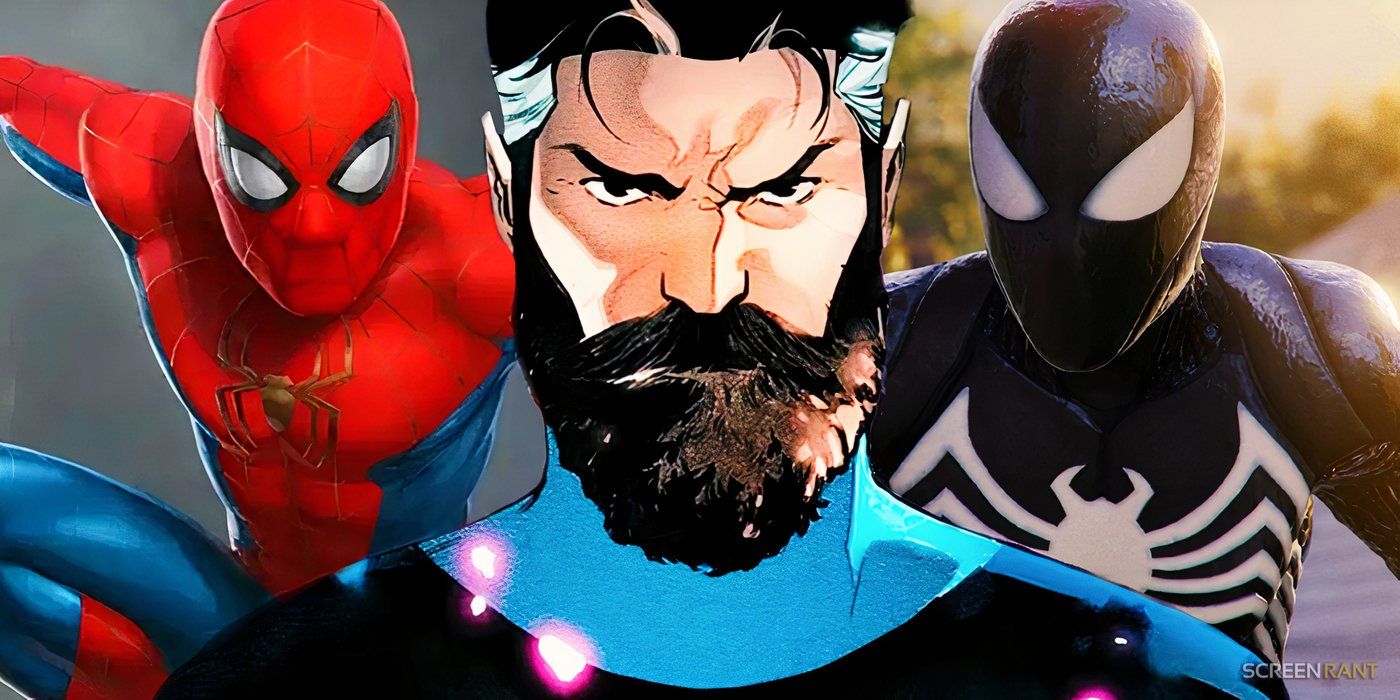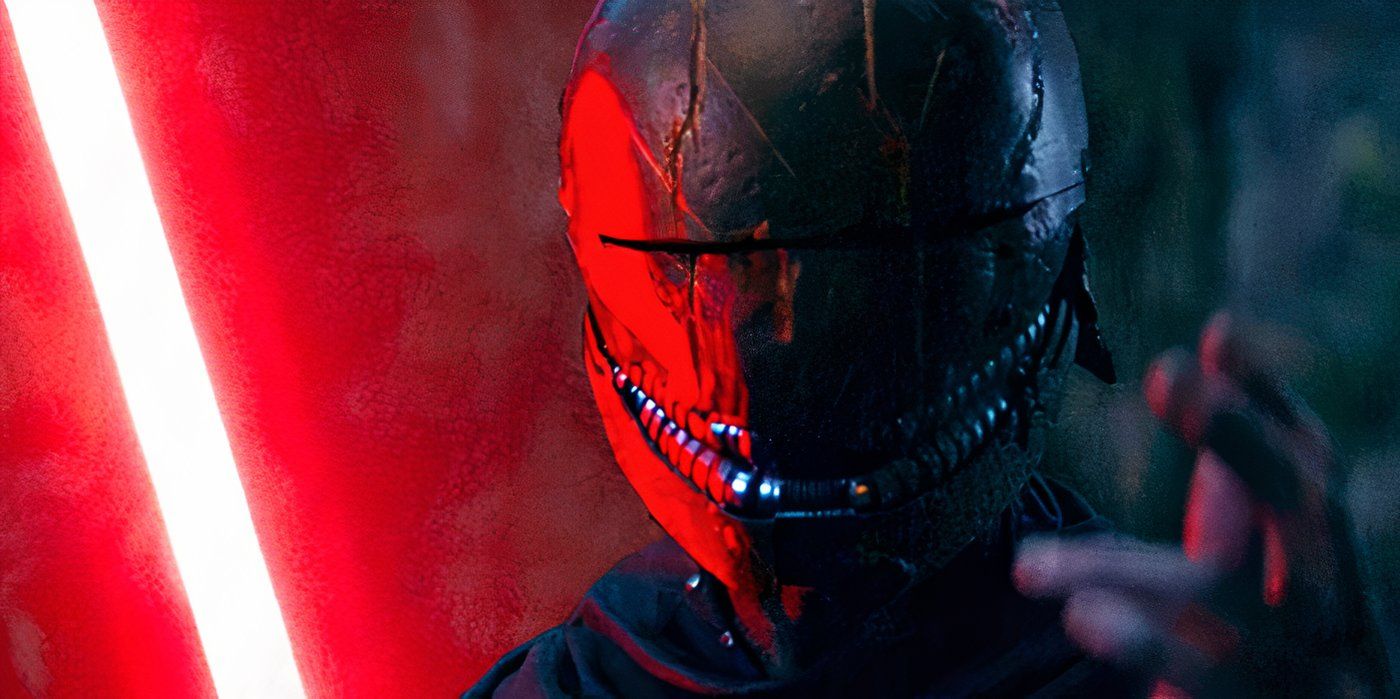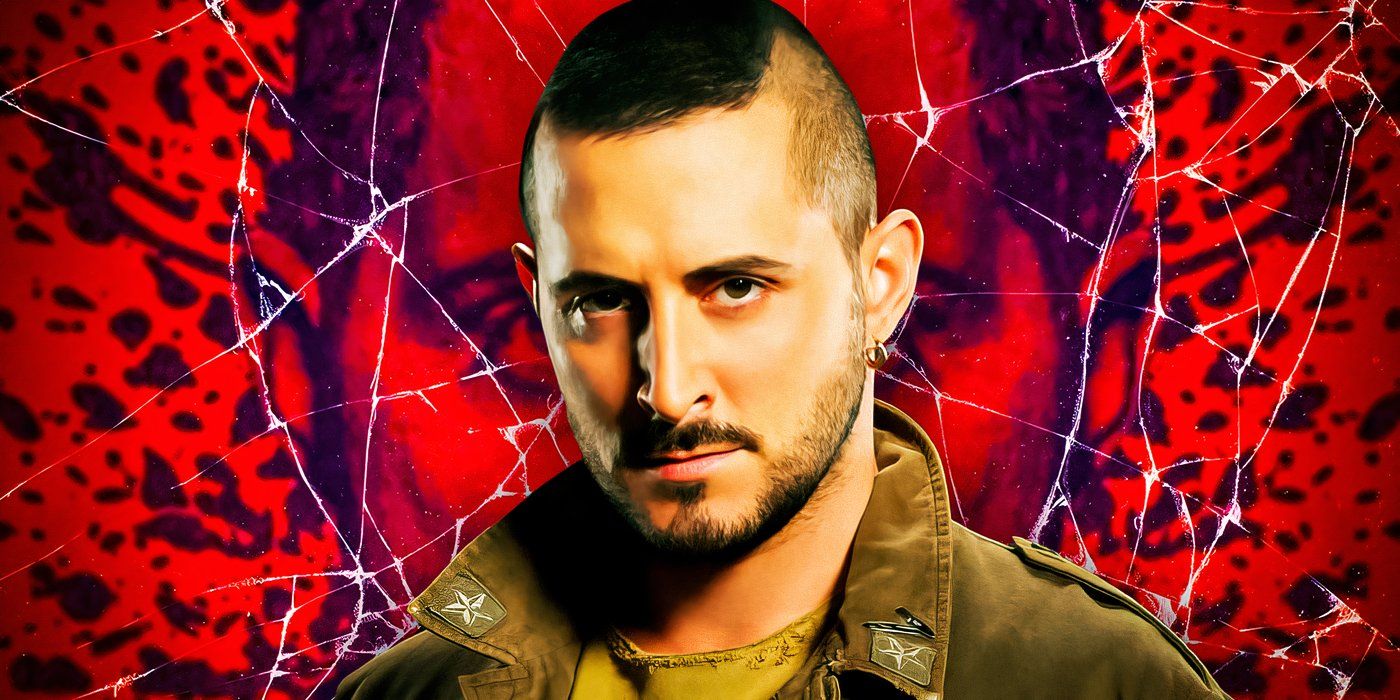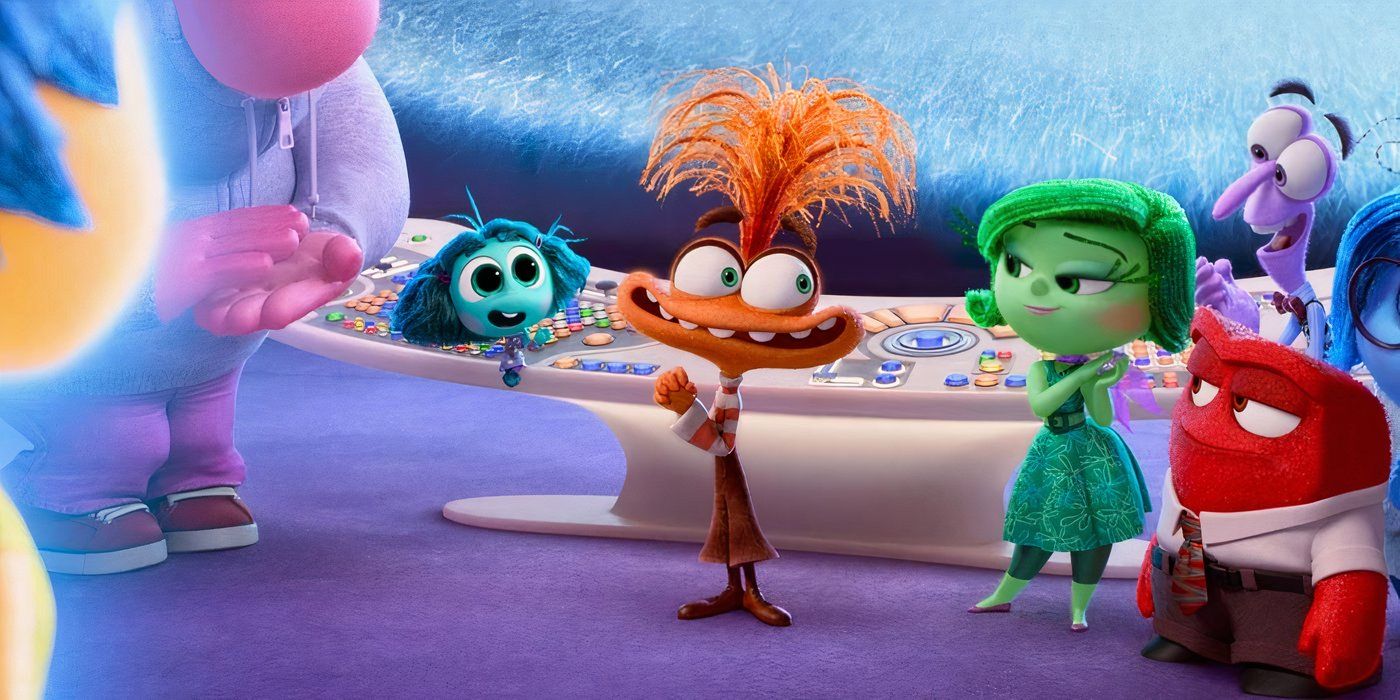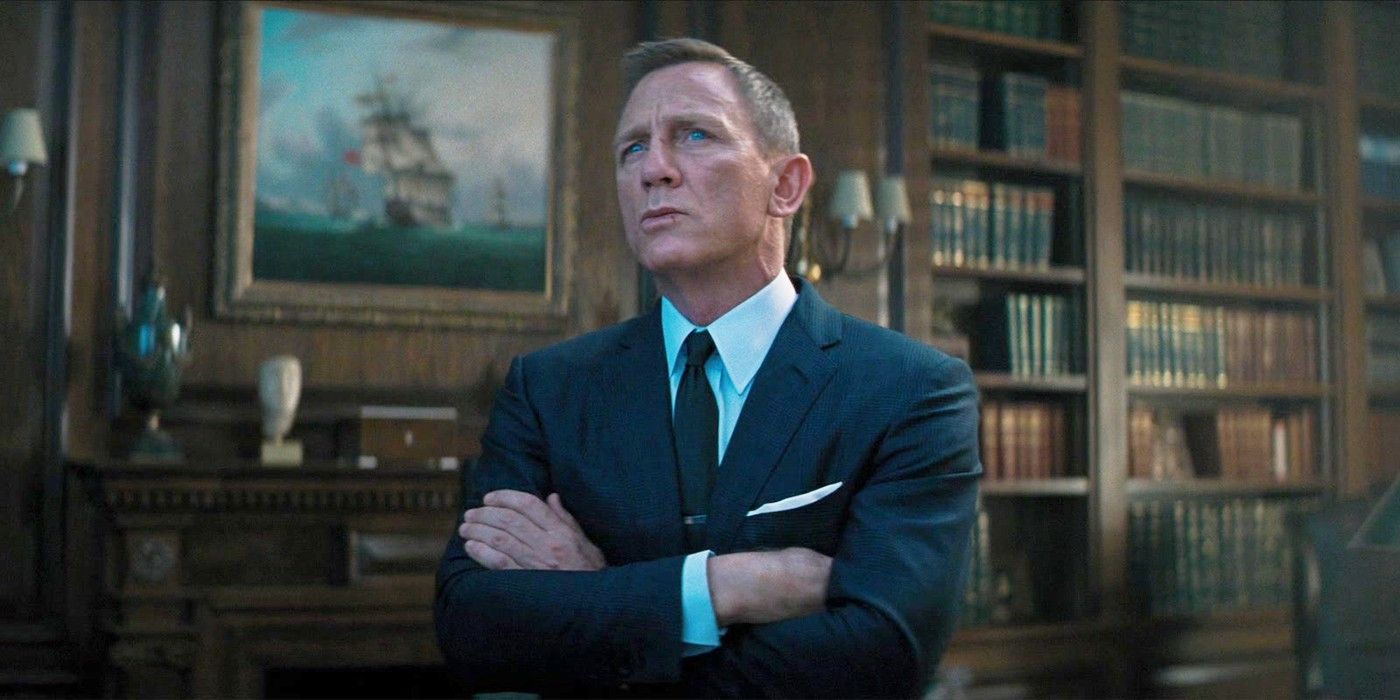True Blood was a hit at the time of its 2008 debut, featuring seven seasons worth of vampire lore that started out fresh, but slowly began to decline in quality. The HBO series brought an innovative take on the vampire genre when it premiered, led by Anna Paquin and a talented ensemble cast. While the first few seasons showed promise, creatively interweaving supernatural elements with thought-provoking social commentary, the show struggled to maintain momentum. As True Blood progressed, the storylines became increasingly far-fetched and overly complex, and the once-inspired metaphorical backbone was dwarfed by camp.
Still, even as the writing quality deteriorated, the appeal of the show’s mystical Louisiana setting kept fans tuning in. Though True Blood is not primarily remembered as the trailblazer that was known for its visionary genre storytelling, it did play a key role in paving the way for other fantasy books turned into TV shows. As we analyze the trajectory of the show from its thrilling early seasons to its convoluted later years, it serves as an example of how challenging it can be to keep innovative television fresh without losing sight of what made it stand out in the first place.
7 Season 6
Sloppy writing and weak characters
Season 6 of True Blood suffers from a noticeable decline in quality following the departure of original showrunner Alan Ball, the creator of Six Feet Under, as show that happens to be one of the best TV shows of all time. Many aspects falter, from the acting to the directing to the writing. Lead actress Anna Paquin struggled to make the overly stylized dialogue feel natural, a far cry from previous seasons where she carried the show with compelling, engaging performances. The directing also lacks the flair and vision that Ball provided.
Most damaging, though, are major plot issues that emerge in season 6. A virus called Hepatitis V is suddenly introduced as lethal to vampires, despite no prior mentions across five whole seasons, a glaring retcon that comes across as forced rather than cleverly integrated lore. Additionally, the show ignores its own established rules around time passage in the fairy world, creating confusing continuity issues for viewers. From introducing bizarre new plot elements out of nowhere to abandoning key worldbuilding rules, season 6 embodied the aimlessness and loss of direction that would emerge in Ball’s absence. Sloppy writing choices diminish both the season’s self-contained storylines and True Blood’s previously brilliant narrative.
6 Season 7
Ending the series on an unsatisfying note
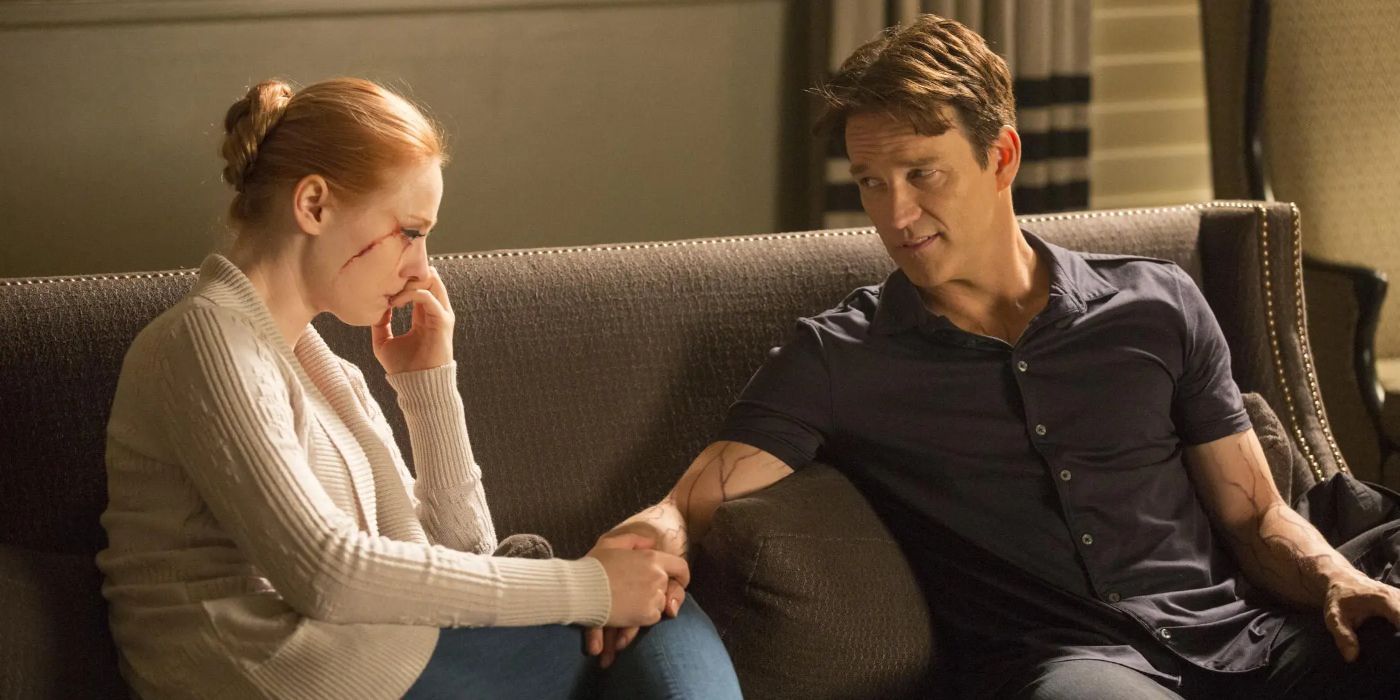
While season 7 of True Blood is typically considered the worst of the series, it holds up better than the season before it, but is not without its faults. The final episodes of the series do effectively return to focusing on human and vampire conflict, something that had been missing after Alan Ball’s departure. Despite ditching some of the show’s overwhelming mythology baggage, any positives are overshadowed by the continuous dismissal of characterization and established continuity. The off-screen death of Tara, a longstanding central character, epitomizes this neglect, as if she were a mere afterthought rather than a meaningful part of the show.
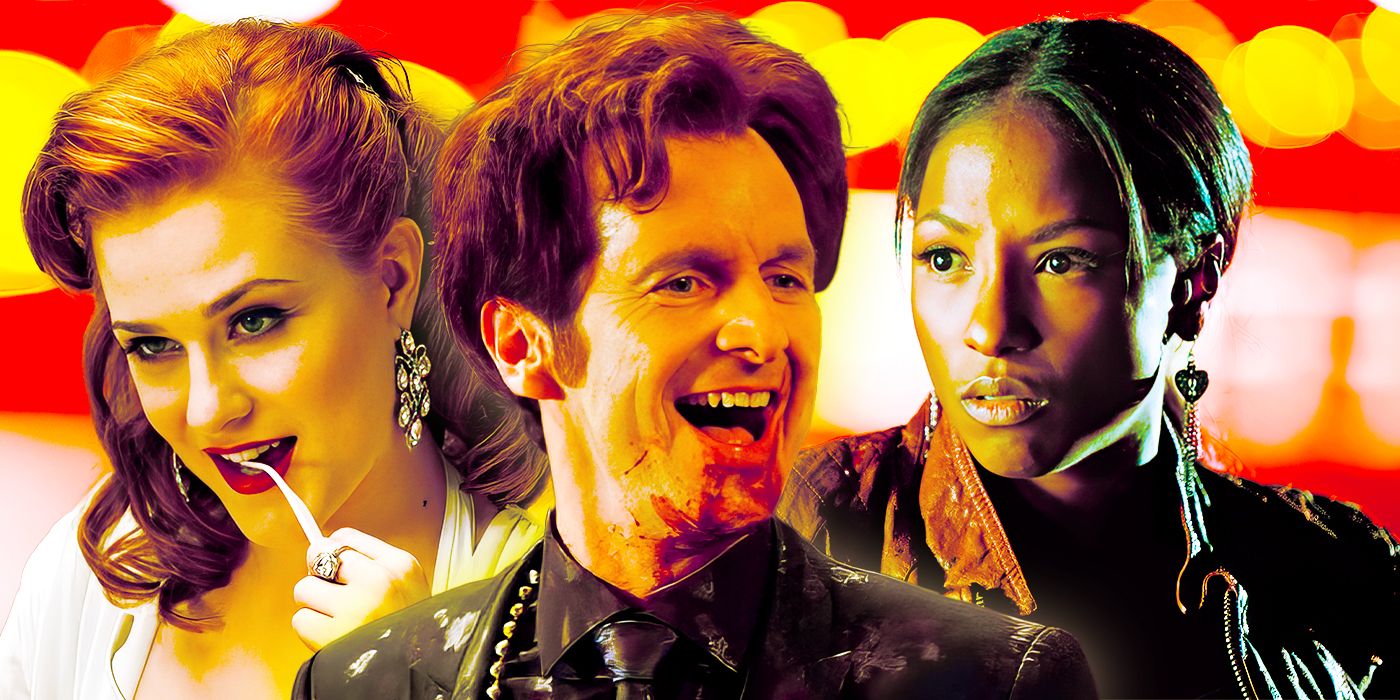
Related
10 Promising Characters That True Blood Completely Wasted
True Blood gave audiences an abundance of great characters and storylines, but there were also a number of characters that deserved much better.
Other foundational characters like Alcide are also killed off without narrative purpose beyond attempted drama, revealing the writers’ apathy towards the show’s history. Baffling character choices further erode season 7’s quality, like Bon Temps citizens raiding a police station for weapons to hunt vampires at night. The show also stubbornly continues pushing the toxic Sookie/Bill relationship, despite six seasons demonstrating their incompatibility. Long-running characters meet dismissive ends, nonsensical choices abound, and relationship dynamics insult rather than enrich. Via sloppy writing that abandons True Blood’s very foundations, season 7 brings the once loved series to a disappointing end.
5 Season 5
Uninspired and repetitive
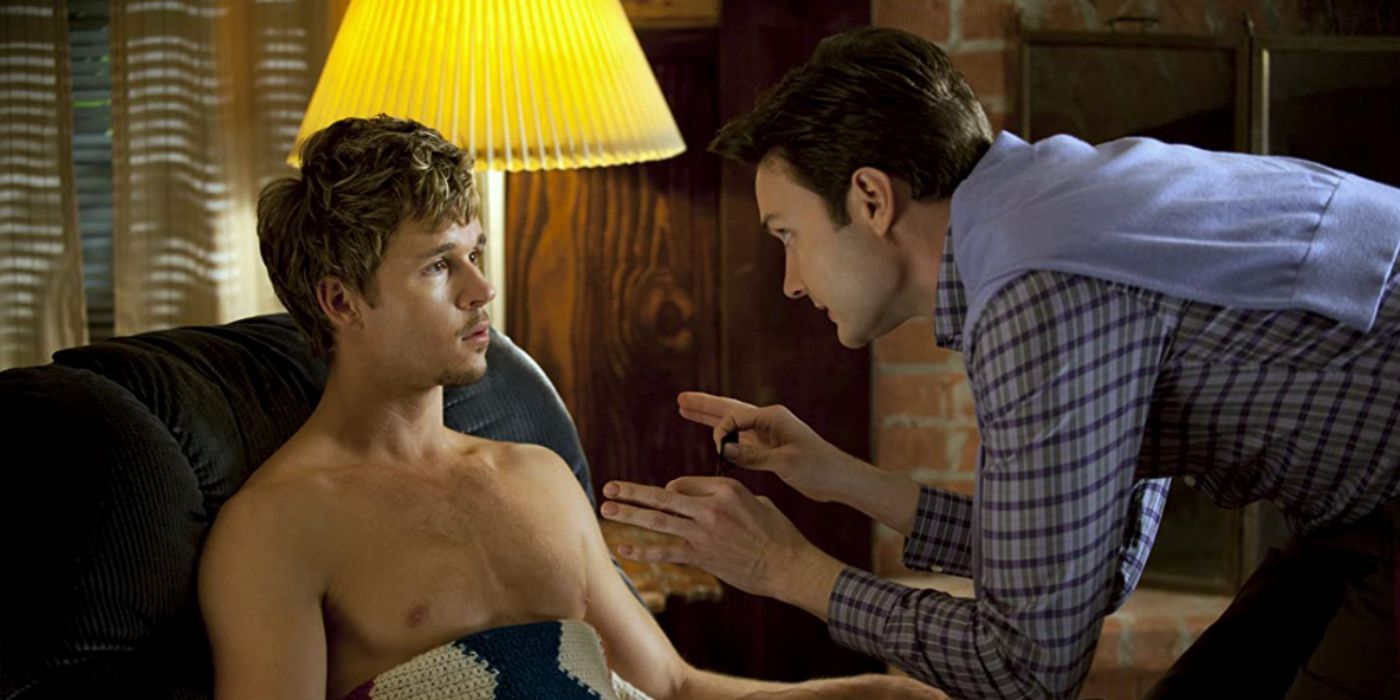
While not as disastrous as later seasons, True Blood’s fifth installment saw the beginning of an unsatisfying decline in quality, with most notably this being Alan Ball’s final season as showrunner. As the show’s scope expanded exponentially with tedious Vampire Authority bureaucracy plots and vampire religion gone wrong, it lost touch with its initial small-town charm. Season 5 suffers from failing to deliver meaningful payoffs, like Luna shifting into Sam or the utterly forgettable Terry subplot. Mythology retreads also disappoint, with multiple ancient fairies meeting anticlimactic ends via their own astounding stupidity. A few highlights poke through, such as the Jessica, Hoyt, and Jason love triangle.
However, broader themes of identity and control through Tara’s transition to vampirism are carelessly sidelined, despite their narrative potential. Ultimately, season 5 marks when True Blood’s once-sharp focus begins to drift. In ballooning its universe outwards without purpose, the show’s signature tone faded away. An onslaught of failed new plotlines failed to capture the interwoven magic that manifested when True Blood simply honed in on its fascinating Louisiana setting and the ordinary people and vampires who inhabited it. Bland, uninspired, and overly convoluted despite scattered glimmers of potential, season 5 was the initial decline towards True Blood’s slow descent into creative oblivion.
4 Season 3
Introduction to a great villain was a season highlight
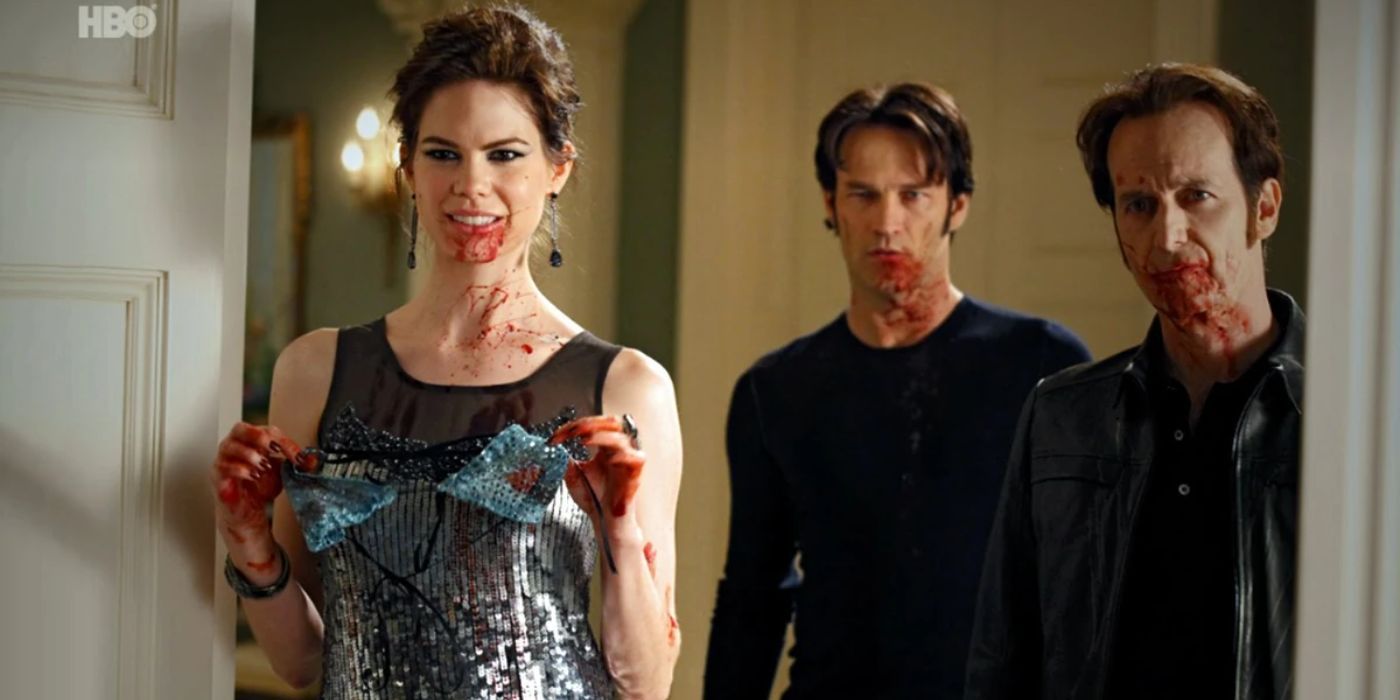
While far from True Blood’s finest outing, season 3 delivers some standouts amidst a mixed bag. The introduction of werewolves unfortunately proves the least compelling subplot, though True Blood’s most powerful villain, Russell Edgington, emerges as a highlight. His anarchic rivalry with Eric electrifies their centuries-spanning conflict, and seeing the conniving Bill Compton as a liar exposed was a satisfying moment. However, the weaker aspects are hard to overlook. Supporting stories like Franklin and Tara’s troubling dynamic have aged particularly poorly, glossing over disturbing misogyny and assault for trivial one-liners.
Such glaring flaws keep season 3 firmly in the middle of True Blood’s run. For all its unevenness and ethical blind spots, enough glimmers of greatness peek through to offer some redemption. Russell Edgington’s delirious menacing and the cathartic dismantling of Bill’s duplicity stand out as the season’s legacy. While lacking the early seasons’ focus or the later years’ ambition, season 3 of True Blood resides in the realm of an appropriate mess.
3 Season 4
Thoughtful and engaging moments filled each episode
With compelling themes and character development, season 4 stands as one of True Blood’s finer moments. An interesting narrative that tackles victimhood and the corruption of abuse victims turning into abusers, was explored through Antonia’s nuanced antagonist arc from vengeful spirit to one who breaks the cycle of violence. Additionally, new relationships wonderfully flesh out the characters, from the long-awaited pairing of Eric and Sookie to sentimental bonds like Lafayette and Jesus. Even tertiary characters get dimension via Andy and Holly’s romance or touching Stackhouse sibling moments. It is character enrichment like this that allows season 4 to shine.
Protagonists and antagonists alike grow in relatable, meaningful ways, their traumas and triumphs all revolving around a central motif about abuse’s legacy. If original showrunner Alan Ball had continued, season 4’s groundwork likely would have sparked an even stronger unconventional love story between Sookie and Eric. As it stands, season 4 resonates through its empathy, insight, and skillful broadening of True Blood’s universe. By granting well-earned development to both old favorites and new faces and exploring resonant themes, the season captures True Blood at some of its thoughtful, engaging best.
2 Season 2
A great season for character development
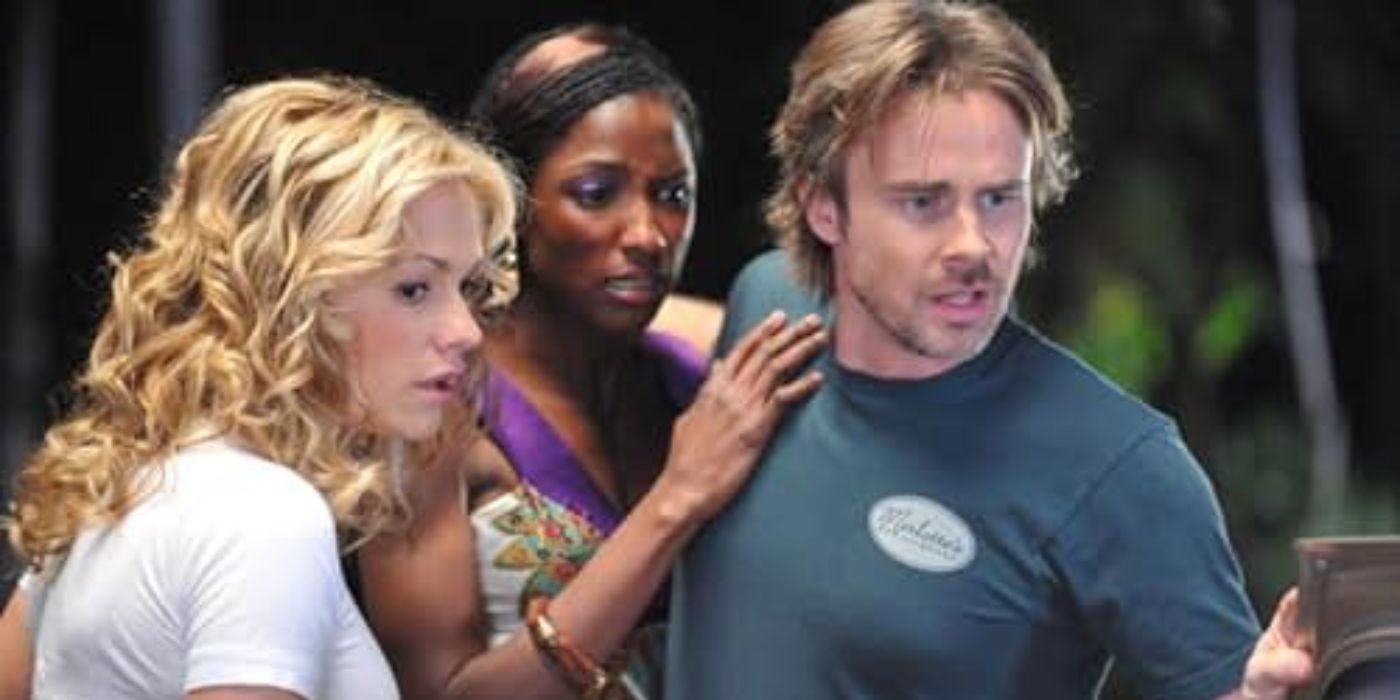
As one of True Blood’s richest character-driven seasons, season 2 earns its status as the series’ penultimate year. The zealotry of the Fellowship of the Sun makes for a thrilling source of conflict, balanced by the benevolent wisdom of the ancient vampire Godric. Jason’s development into a more layered character also dazzles, complemented by a relatively condensed focus dividing the season between the Fellowship and Maenad arcs. While Maryann’s storyline slows the momentum at times, the payoff comes from drawing Sookie, Bill and Jason into confrontation with her manipulative madness. Overall, there is a harmony in season 2’s dynamic between its sympathetic and sinister figures that future seasons forgot.
1 Season 1
A fresh and exciting take on the supernatural
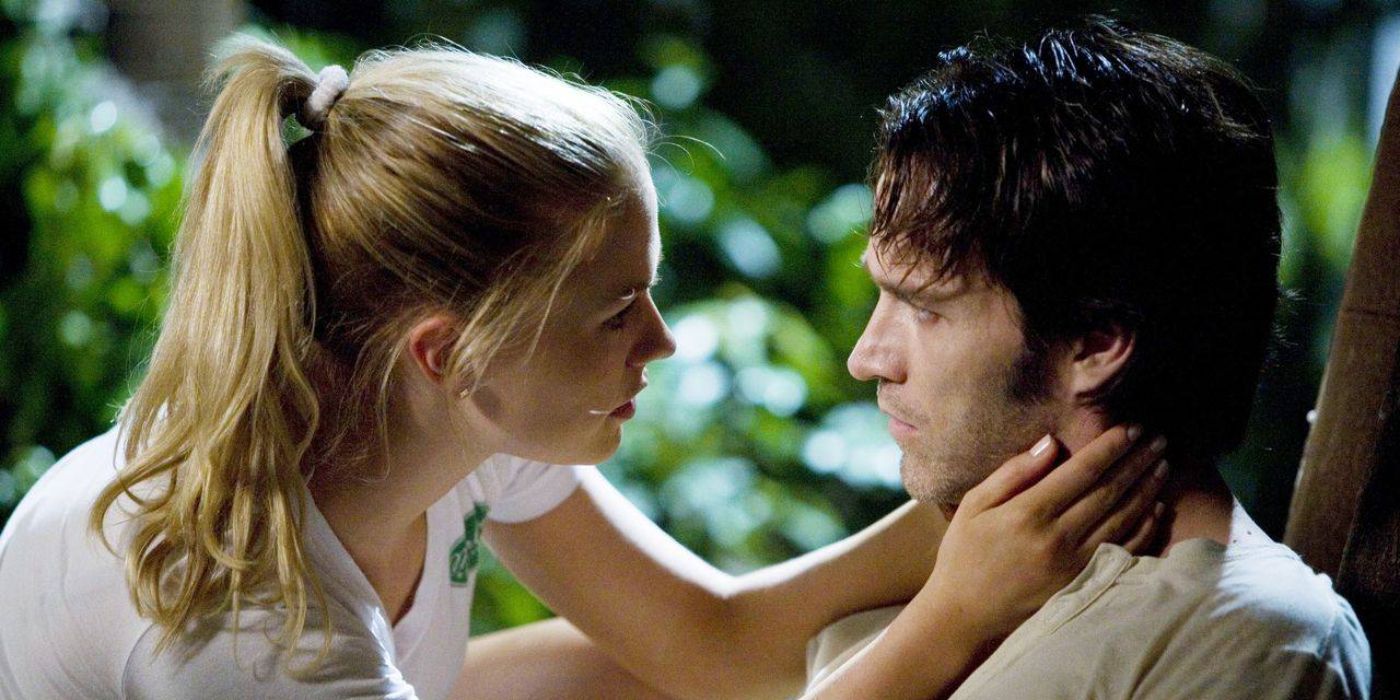
Capturing a one-of-a-kind tone, season 1 stands supreme as True Blood’s finest assembly of mystery, relatability, and intrigue. By portraying characters experiencing personal awakenings, retaining a grounded villain in Rene, and balancing the supernatural with familiar human flaws, season 1 constructs an atmospherically cool identity for True Blood. Equally engrossing is the grounded commentary on human reaction to difference, embodied in Rene’s mental collapse over changing times. Before spectacle took over, True Blood was a creepily insightful meditation on otherness. By marrying a fresh, subtle cast to themes of fear and acceptance while unlocking a new dimension for television vampires, season 1 delivered a breathlessly original creation.
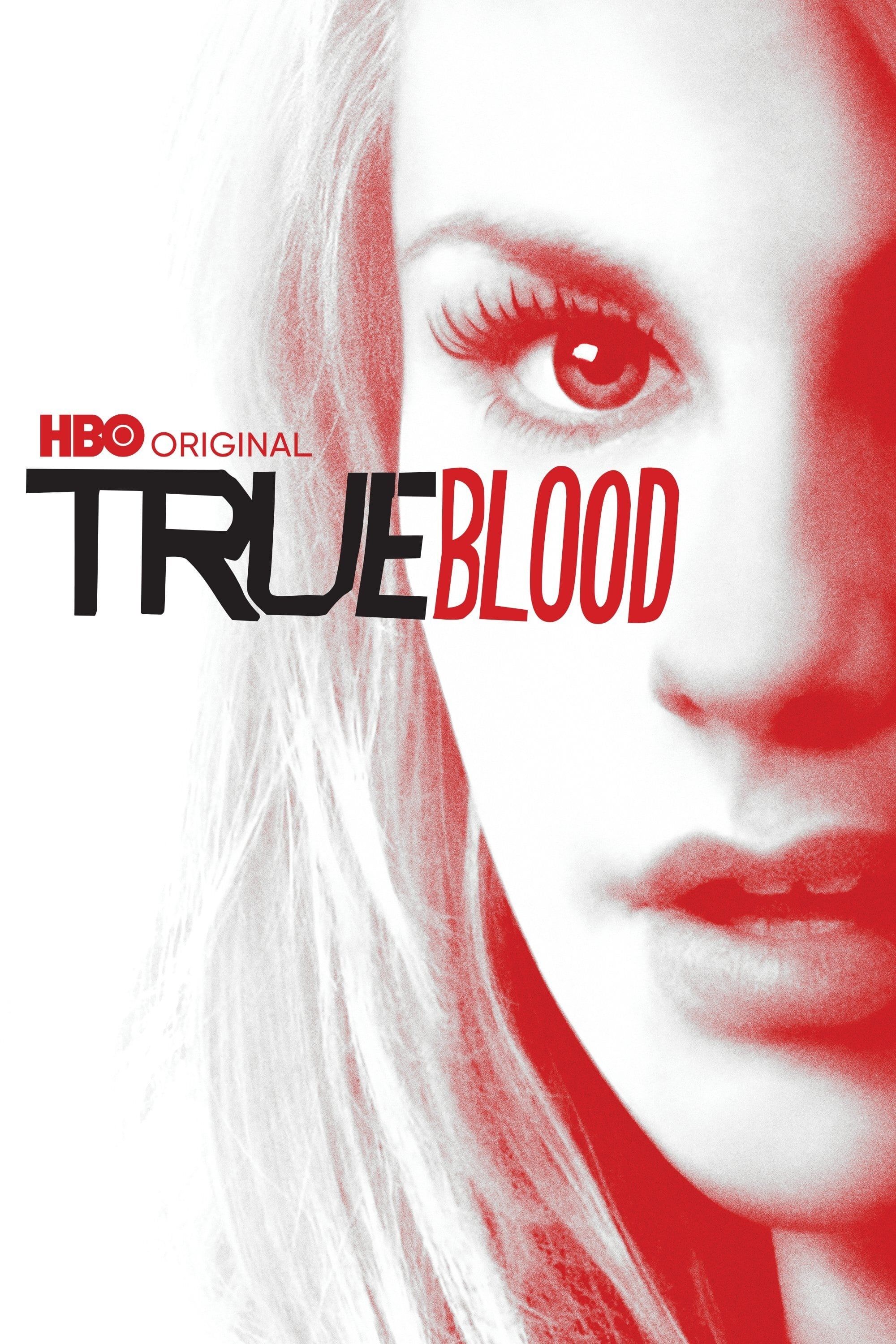
true blood
True Blood is a horror/fantasy drama series created by Alan Ball and starring Anna Paquin, Stephen Moyer, and Alexander Skarsgård. The series follows the life of Sookie Stackhouse, a waitress with telepathic powers that lives in a fictional town in Louisiana. In this town, a new synthetic “drug” has allowed vampires to escape their coffins and roam amongst the living.
- Release Date
- September 7, 2008
- Cast
- Ryan Kwanten , Kristin Bauer van Straten , Sam Trammell , Alexander Skarsgard , Stephen Moyer , Rutina Wesley , Anna Paquin , Chris Bauer
- Genres
- Drama , Supernatural , Horror , Romance , Thriller , Fantasy
- Seasons
- 7
- Showrunner
- Alan Ball
